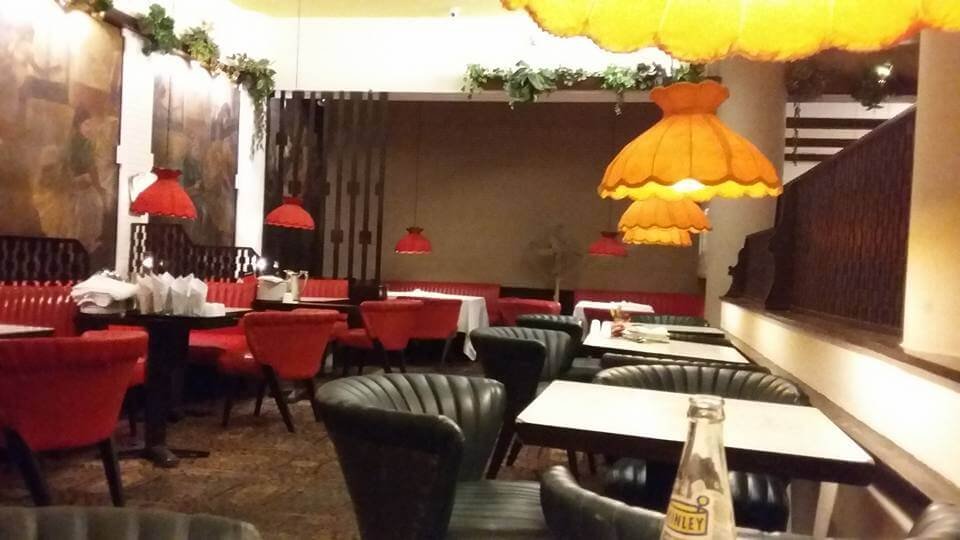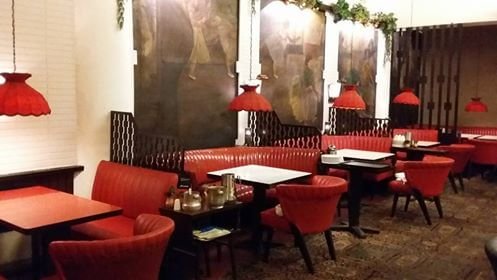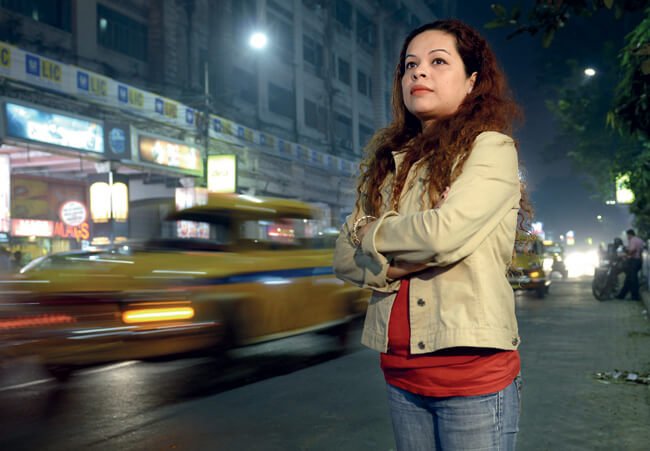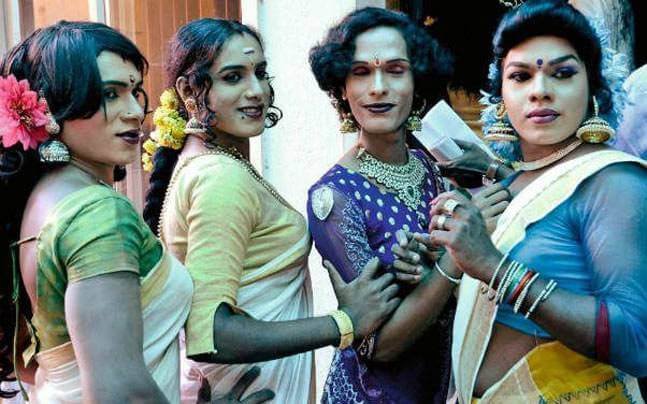Picture this. You walk into the city’s most popular restaurant with your father, who, like most Indian fathers, is not really a natty dresser. The head steward of the restaurant, who always looks like he is smelling yesterday’s shit, walks up to you and gives your father the once over. He ever-so-subtly flinches at your father’s old Vimal checked-shirt, he raises an eyebrow at your father’s frayed chinos and then stops at his open Bata sandals. He then shakes his head and says your father can’t be allowed in because your father is “inappropriately” dressed.

Angry enough to register an official complaint with the restaurant or write a couple of strongly-worded reviews in Zomato? Now replace your father with your driver. Takes the sting out of the experience, doesn’t it?
But it shouldn’t, here is why.
Last weekend, Dilashi Hemnani decided to take her driver for a treat to Kolkata’s iconic Mocambo restaurant on Park Street. Mocambo, for the uninitiated, is a place that thrives on Kolkata nostalgia. It serves moderately decent food with dollops of attitude. It’s the sort of place where waiters are always surly and are usually as old and unchanged as the upholstery is.

Dilashi, who was visiting Kolkata for a week, was probably not aware of the ways of Mocambo. She probably expected a decent meal with her driver, “whose great service and care throughout her stay in Kolkata for a week was excellent”. In other words, she was a decent person taking out another decent person for a meal.
But the restaurant gods decided to rain on her.
What was supposed to be a pleasant evening with a new friend turned out to be an evening of indignation. After making her wait for at least 30 minutes in the balmy weather of Kolkata, the restaurant staff turned Dilashi and her driver away – saying he was “drunk”. There is of course no way of them knowing his blood alcohol level, unless the doorman is a human breathalyzer. You can read Dilashi’s account of the incident here. On being contacted by ScoopWhoop News, the restaurant authorities had this to say about the incident: “We have allowed drivers and domestic helps before, but this guy wasn’t clean enough. He was wearing sandals and was dressed in an attire that was not appropriate.”
This won’t be the first time a commercial establishment turned a prospective customer away citing bizarre restaurant policies. In 2014, the Park Street rape survivor, Suzette Jordan, wasn’t allowed in South Kolkata eatery, Ginger allegedly because she was the “Park street rape survivor”. Apparently, the staff of the restaurant insisted that she leave the premises as they couldn’t have the Park Street Rape survivor in their restaurant. Jordan, who succumbed to meningo-encephalitis last year, took the incident to heart. “I felt like I was raped all over again”, she told me in a previous interview.

Earlier this year, some members of the transgender community of Kolkata were turned away from a night club because they were inappropriately dressed. “This keeps happening in different parts of the country. A transgender person, no matter how well-dressed he or she is, will never gain entry to so-called posh restaurants,” says Anindya Hajra of Pratyay Gender Trust, a prominent transgender self-help group of the country. Do straight people who frequent nightclubs really feel that their modesty will be compromised if a transgender person parties with them? Or do restaurant owners and managers think that being transgender is an illness or condition which is “contagious”? Answer: It’s not.

Last month, ironically on Independence Day, I was turned away from Delhi’s newest tony restaurant, Masala Library, on account of being “inappropriately dressed”. It’s important to note that Masala Library, owned by a celebrity chef is a high-end Indian eatery. I was wearing a cotton FabIndia kurta with churidaar and leather sandals. The maître d’, who had earlier informed me and my friends that there is a “10-minute” wait, tottered up to us in impossibly high stilettos, gave us a look-over and informed us that they have a dress code and they can’t allow people with “open sandals”, whatever that means. Slightly ironic that an Indian restaurant doesn’t serve people in Indian footwear.
But really, can restaurants legally turn prospective customers away like this?
According to the Indian Contract Act of 1872, the answer is no. However, restaurants do have the right to deny services to customers under some circumstances. “But Article 15(2) of the constitution states that a citizen cannot be discriminated on basis of race, caste, sex or place of birth with regard to access to shops, public restaurants etc. But Article 15 can only be used against the state. So essentially you have to take the government to court to ensure the restaurant complies,” says a Delhi-based law professor.
Which makes the Mocambo issue more of an ethical issue than a legal one. Why did members of the restaurant staff feel that the sanctity of Mocambo will be defiled if a person, who probably belongs to the low-income group, dines there?
Were they concerned about the safety of their richer patrons who could, somehow, be so affronted by the not-so-richness of Dilshahi’s driver that they needed to be insulated against it? Of course it is up to a restaurant to decide who they can or cannot allow entry to. But as long as someone is not creating a nuisance of themselves, and is dressed in clean and non-smelly clothes – who cares if they are drivers or CEOs? This is the worst form of elitism, which spills over from our homes and years of not sharing the same space as the people who work in our homes.
Too bad that restaurants are proud upholders of this elitism. And are happy to serve us a portion of devilled crab with a side order of classism thrown in for added taste.

















